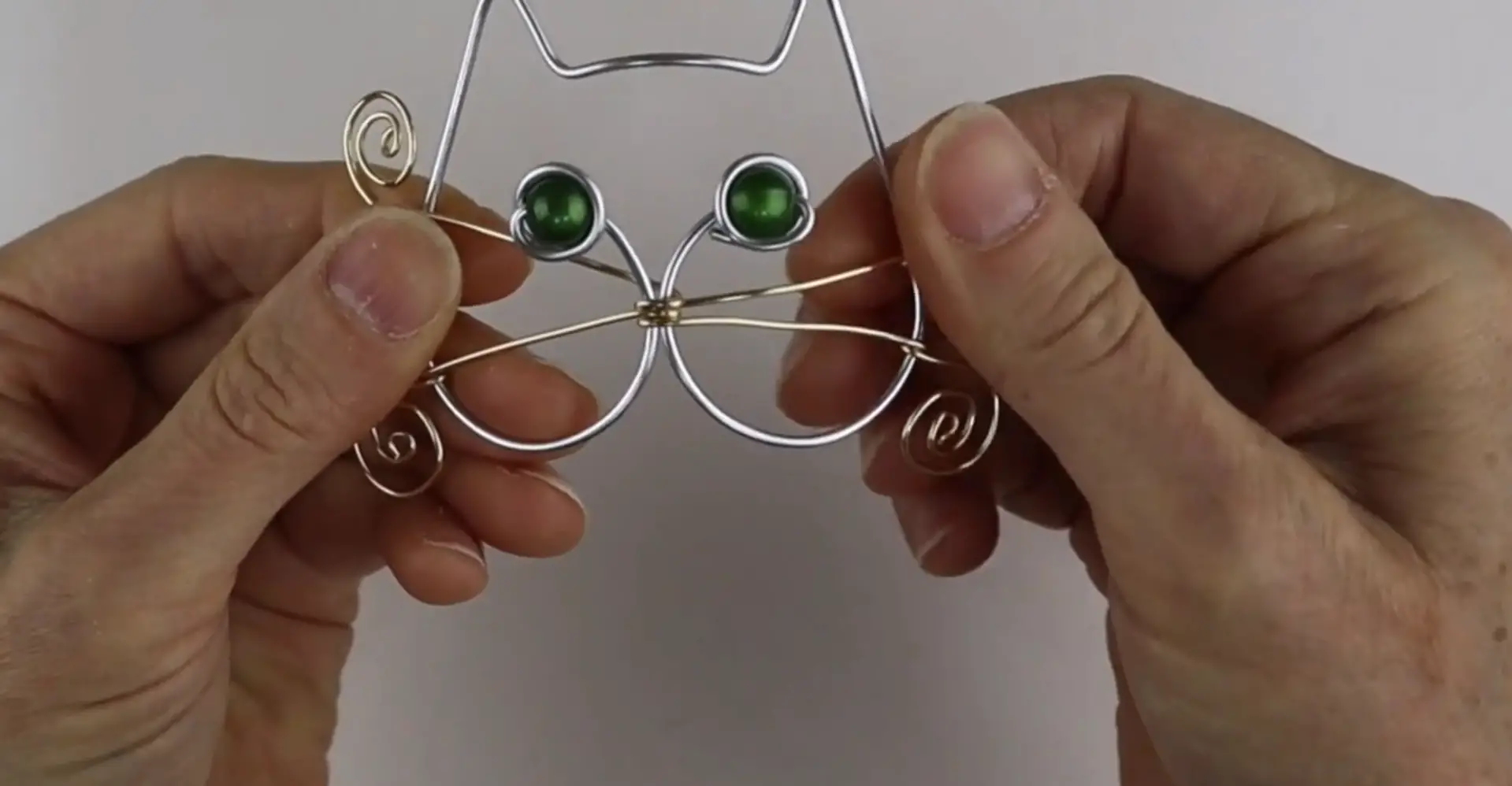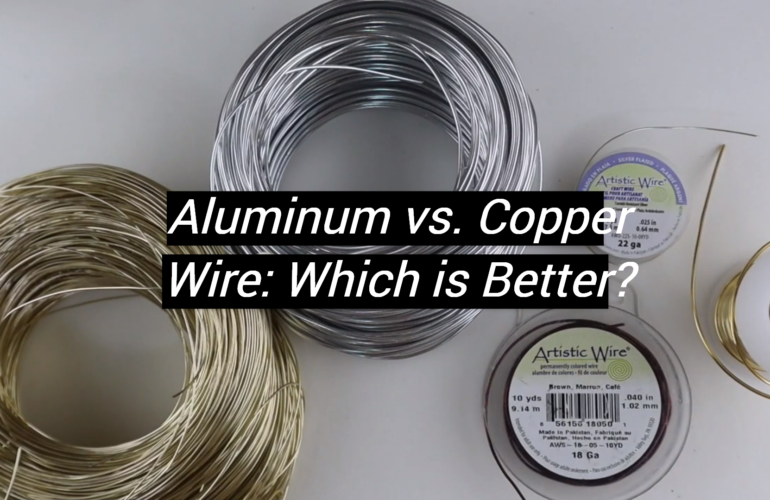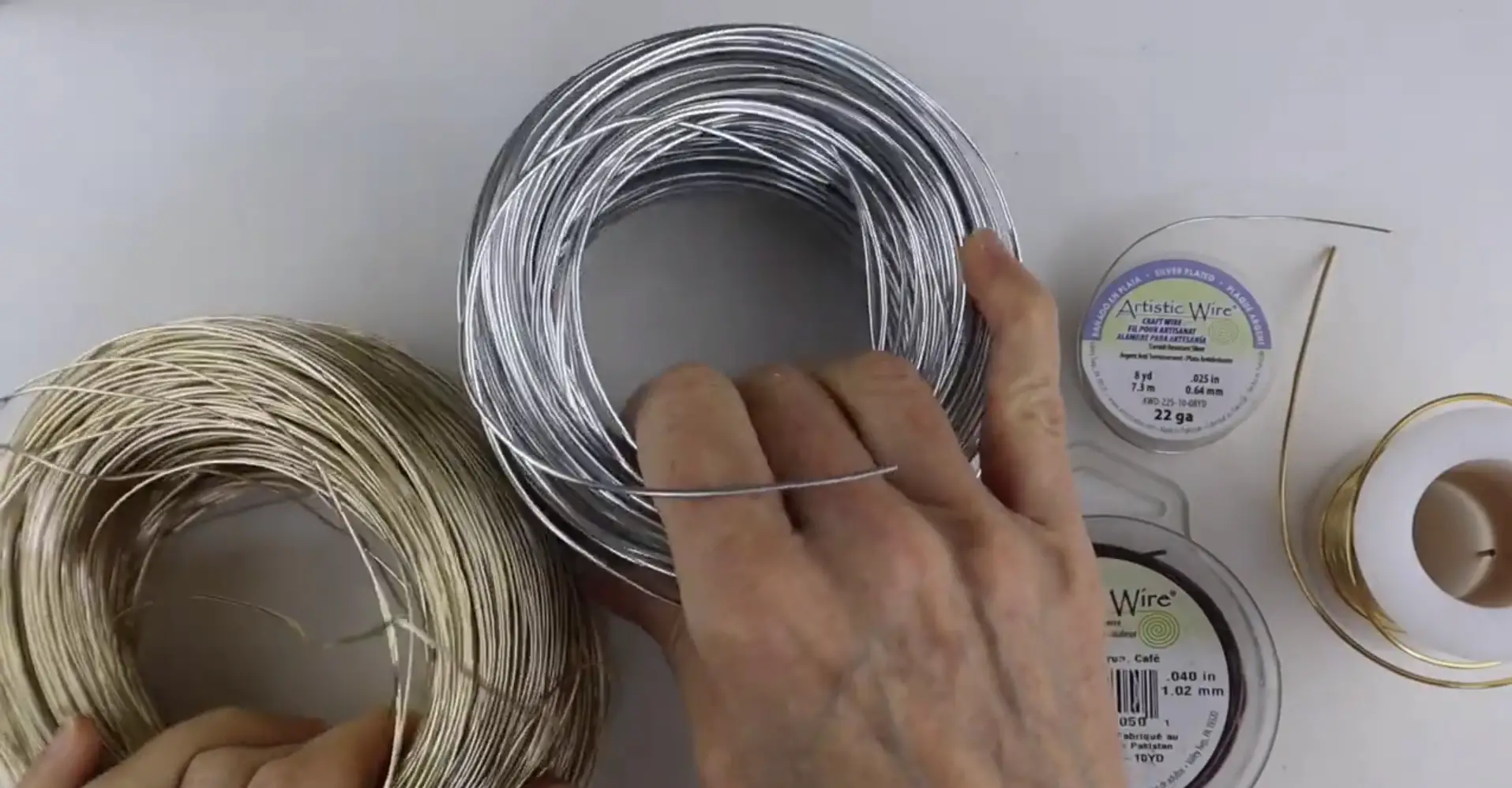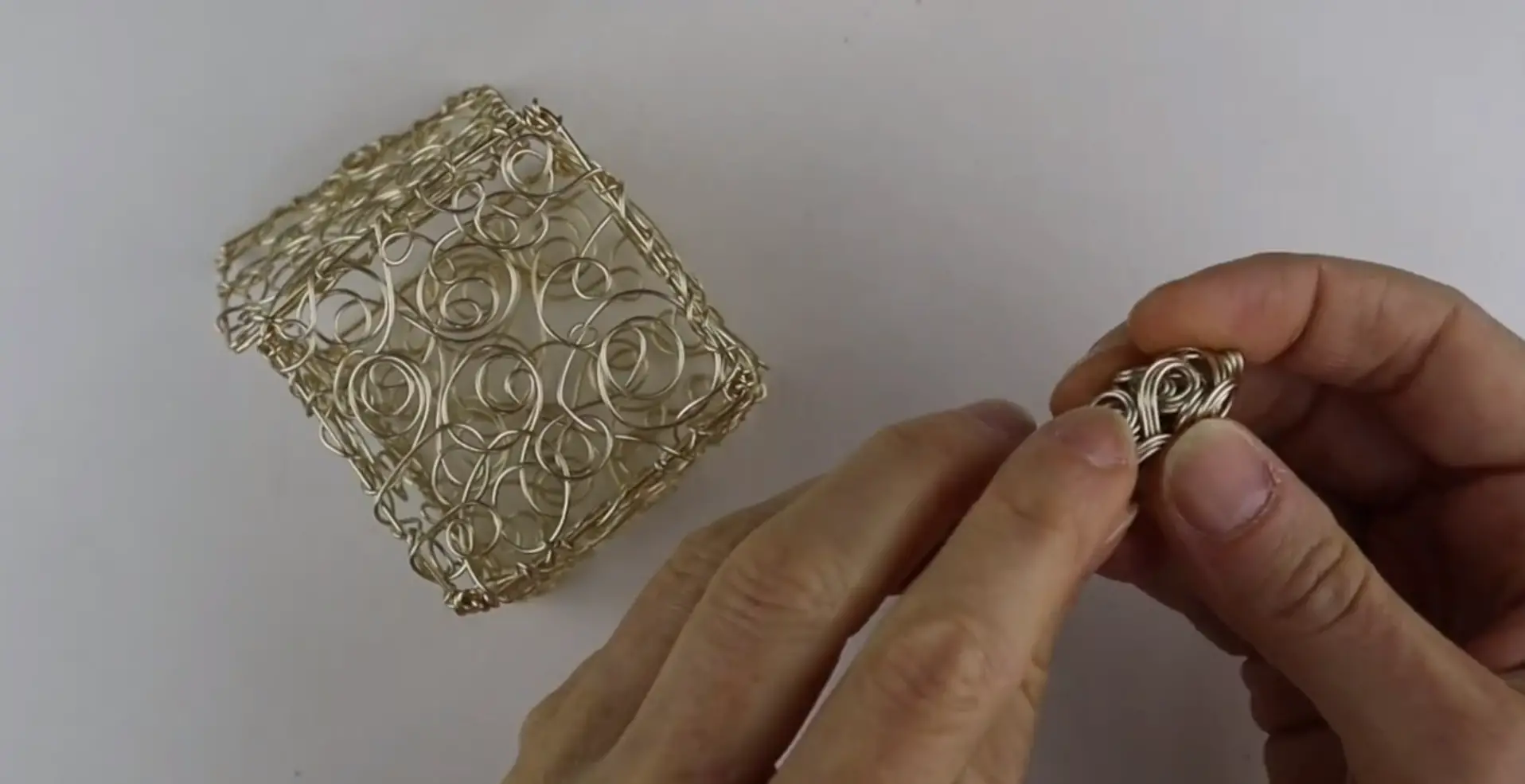When it comes to wiring homes and buildings, there has been a long-standing debate about which wire is better: copper or aluminum one. While copper has been the traditional material of choice for years, aluminum wire has become more popular in recent years due to its lower cost. In this blog post, we will dive deeper into the topic of the similarities and dissimilarities connected with aluminum wire and copper one. It will help you to get more information which one to use for your next wiring project.
Aluminum Wires: Benefits and Drawbacks
Aluminum electrical wires were common in homes that were built in the 1960s-1970s, but they fell out of favor due to concerns about safety. Despite this, aluminum wiring can still be found in some homes today. Let’s explore the benefits and drawbacks of aluminum wiring, so you will learn some new information and understand whether it’s a good option for your home.
Benefits of Aluminum Wiring
This type of wiring has a few benefits that make it an attractive choice for homeowners. The first benefit is cost. Aluminum wiring is cheaper than copper wiring – the most popular kind of wiring nowadays. This can make it a good choice for those on a tight budget.
Finally, aluminum wiring resists corrosion easily, as a result it can last a long time without needing to be replaced. If you’re looking for a wiring option that will require minimal maintenance in the long run, aluminum wiring may be a good choice for you. [2]
Drawbacks of Aluminum Wiring
While there are some benefits of working with aluminum wiring, there are also some drawbacks to be aware of. The first is safety. Aluminum wiring can cause a fire to start if it’s not installed correctly. It may lead to overheating and, in extreme cases, can be the reason for a fire.
Finally, this type of wiring can be difficult to work with because it’s rather soft in comparison to copper wiring. This means that it can be damaged easily during installation, and it can be harder to make connections that are secure and stable. [3]
Aluminum wiring can be an attractive offer for those on a budget who want a wiring option that’s easy to install and requires minimal maintenance. However, it’s important to be aware of the potential safety hazards and limitations of aluminum wiring before choosing it for your home. We recommend consulting with a licensed electrician who can advise you on the best option depending on your specific needs.
Copper Wires: Benefits and Drawbacks
Copper wires have been used for conducting electricity for several decades now. They are the backbone of many electrical systems around the world. They are preferred because of their high conductivity, strength, and flexibility.Let’s look into the benefits and drawbacks of using copper wires.
Benefits of copper wiring
Copper is known to be an ideal conductor of electricity and to have the highest conductivity compared to other metals. Copper wires are therefore preferred because they provide low resistance to electricity, allowing the free flow of current, and protecting devices from overheating. Copper wires are also known to be strong and flexible, making them perfect for installing in tight spaces.
Copper wires are also corrosion-resistant, which makes them perfect for outdoor use. They are also robust enough and it means that bad weather conditions are not a problem for them, and that’s the reason why they are often a perfect choice for industrial and commercial settings.
Drawbacks of copper wiring
Although copper wires have several benefits, they also have their drawbacks. One of the main drawbacks is its price. It is not a secret that this kind of wiring is pretty expensive in comparison to some other types. This can make it difficult to purchase if you have a tight budget. Another disadvantage of using copper wire is that it is heavy compared to other materials. This weight can be a problem when you need to install wires in a roof or ceiling.
Another significant drawback of using copper wires is that they conduct heat well. This can be a problem in situations where you need to protect devices from overheating. If copper wires are used, they can increase the risk of overheating and short-circuits. [3]
Copper wires have many benefits, including high conductivity, strength, and flexibility. They are also durable and resist corrosion easily, that’s why they are a perfect option for outdoor use. However, as you probably have already understood, this type of wiring has a number of drawbacks as well, including their high cost and weight. Additionally, copper wires conduct heat well, and it is a problem, because it can increase the risk of overheating and short-circuits. Overall, if you’re looking for a quality product that will last long and provide excellent conductivity, then copper wires are undoubtedly worth considering.
Which Material Will Be a Perfect Choice for Your Home?
Building or renovating a house is an enormous responsibility that comes with a long list of things to consider. One of the most crucial among them is the type of wiring that you should choose. Selecting the right wiring material is paramount for the safety and longevity of your home. The two most popular options for wiring houses today are copper and aluminum. Although they serve the same function, there are vital differences between them that you need to consider before making a decision. [3]
Copper Wiring
This type of wiring is made from copper metal, which is sought after for its excellent conductivity rate. Compared to aluminum, copper wiring has a higher ampacity, which means it can carry more electricity while preventing overheating. Another significant advantage of copper wiring is its ability to handle higher temperatures, which helps to reduce the risk of fire outbreaks in your home. Additionally, copper wiring is also more flexible, which makes it more durable and resistant to kinking in comparison to aluminum wires.
Aluminum Wiring
On the other hand, aluminum wiring is a great option for those who are on a tight budget, because it is much cheaper in comparison to copper wires. Aluminum wiring has a higher degree of thermal expansion, which means it’s prone to thermal cycling. This cycling makes the wires’ connection to the outlets and switches susceptible to loosening up over time, which can lead to overheating and fire. Conversely, if you use aluminum wiring, you will need special connectors and additional copper wiring to prevent these risks from happening. Comparing

Copper and Aluminum Wiring
Both copper and aluminum wiring have their benefits and downsides. While copper wiring is more expensive, it is also less hazardous than aluminum wiring. In contrast, aluminum wiring is less expensive than copper but poses a higher safety risk. Additionally, the lifespan of copper wiring is longer than aluminum wiring. In the long term, copper wiring is a superior investment.
Choosing the right wiring material for your home is not an easy decision. It is essential to weigh the benefits and drawbacks of copper and aluminum wiring against each other. After all, your home is your most valuable asset, and you want to ensure that you make the safest and best investment. Keep in mind that the experts advise that copper wiring is the safest and most durable investment for your home. However, if you must choose aluminum wiring, make sure to consult an electrician experienced in installing aluminum wiring to ease your mind. Finally, remember that it’s always worth prioritizing safety over cost when choosing the wiring for your home.
Aluminum and Copper Wiring: The Ultimate Comparison
Choosing the right wiring material for your home is crucial because it will influence the rate of safety in your home. Two of the most widely used options in the market today are aluminum and copper wiring. These materials, as any others, also have some benefits and drawbacks. Let’s compare them. [1]
- Conductivity: Copper is a better conductor of electricity than aluminum. This means copper wiring helps electricity flow more efficiently and effectively. Aluminum wiring, on the other hand, conducts electricity less efficiently, which can lead to overheating and other electrical problems. This is why copper wiring is more commonly used in homes than aluminum.
- Cost: Aluminum wiring is more affordable than copper. It’s also lighter, making it easier to work with during installations. Copper wiring, on the other hand, is more expensive and heavier, making it tougher to install. However, aluminum wiring requires special connectors that can add up to its costs, which can make it equally expensive as copper wiring.
- Durability: Copper wiring is more durable than aluminum, as it is more resistant to corrosion and less likely to develop faults. Aluminum wiring is more prone to corrosion, which can lead to loose connections and other electrical issues. It’s worth noting that aluminum wiring can be just as durable as copper if proper installation and maintenance are done.
- Safety: One of the biggest concerns with aluminum wiring is that it is more prone to overheating and can lead to the risk of electrical fires. This is because aluminum wiring expands and contracts more than copper, causing loosening connections and creating sparks. Copper wiring, in comparison, is safer and less risky as for fires. You can use aluminum wiring in your home, but it should be installed and maintained properly to ensure your home’s safety.
- Maintenance: Proper maintenance of your electrical system is critical, regardless of the type of wiring you use. It’s important to regularly check for signs of corrosion, wear and tear, loose connections, and overheating. With aluminum wiring, maintenance is crucial, as it is more prone to wear and tear and other issues. Copper wiring, on the other hand, is less prone to these problems, but proper maintenance is still necessary. [1]

Choosing between aluminum and copper wiring depends on your budget, preferences, and safety concerns. You can use either material for your home’s electrical system, but proper installation and maintenance are essential to ensure its safety and efficiency. Copper wiring is a preferred choice as it’s more efficient, durable, and safer. However, if cost is a concern, aluminum wiring can be a viable option if installed and maintained correctly. Consult with a professional electrician to know which wiring material is best suited for your home.
FAQ
Why is aluminum better than copper for wires?
The main advantage of aluminum wires over copper is their lower weight and cost. Aluminum is around 50% lighter than copper, which makes a big difference in long-distance applications like power lines and transformers. For the same amount of conductivity, aluminum wires can cost up to 40% less than copper wires, making them an economical choice for budget-conscious projects.
Aluminum is more versatile than copper. Aluminum wires can be used in both overhead and underground transmissions, whereas copper wires can only be used in overhead applications. Moreover, aluminum wires can easily adapt to different shapes and sizes without degrading their performance or causing safety hazards. This versatility makes aluminum wires more flexible in applications where space and weight are essential factors.
Aluminum is highly resistant to corrosion, oxidation, and ultraviolet radiation, making it ideal for outdoor applications. Unlike copper wires, aluminum wires don’t oxidize in the presence of moisture, rust, or flake, ensuring that they last longer without compromising performance. Additionally, aluminum doesn’t require frequent maintenance, making it ideal for difficult to reach locations.
Aluminum wires are eco-friendlier than copper wires. Aluminum is abundant, plentiful, and easier to recycle than copper. Additionally, less energy is required to produce aluminum, reducing inefficiencies and emissions. By using aluminum wires instead of copper, you’ll be contributing to a more sustainable energy landscape and help reduce the carbon footprint of your projects.
While aluminum wires are safe and reliable when installed according to code, there were some issues concerning the early versions of aluminum wires, which had a tendency to overheat and cause fires. However, since the 1970s, updated wiring techniques and devices have made aluminum wire just as safe as copper. A well-installed aluminum wire won’t present any risk, and electricians now have access to remedies that eliminate the oxidation issue.
What is the disadvantage of using aluminum wire?
1) Oxidation and Corrosion: Aluminum wires tend to oxidize much faster than copper wires. Oxidation causes the formation of a thin layer of aluminum oxide, which is a non-conductive material that hinders the flow of electricity. Corrosion of aluminum also leads to wire overheating and fire hazard. As a result, aluminum wires should be maintained and inspected frequently to prevent overheating and other safety hazards.
2) Poor Conductivity: Copper wires are renowned for their excellent conductivity. Compared to copper wires, aluminum wires are less conductive due to their higher electrical resistance. As a result, aluminum wires tend to heat up more than copper wires because they carry more current, which can cause the wires to melt or cause a fire. This disadvantage of aluminum wire is why the National Electrical Code mandates the use of larger-gauge aluminum wiring to compensate for their lower conductivity.
3) Aluminum Wiring Requires Special Connectors: Aluminum wiring requires special connectors to reduce the risk of fire hazards. Aluminum wires tend to contract and expand at a higher rate than copper wires. The mismatch in the rate of expansion and contraction can cause aluminum wires to loosen over time, leading to loose connections and increased risk of electrical arcing, which is a prime cause of electrical fires. Copper wire connectors are not ideal for use with aluminum wires and can cause fire hazards; therefore, aluminum wires need to be fitted with specialized connectors designed for aluminum wires.
4) Aluminum Wiring is Brittle: Another disadvantage of aluminum wires is its malleability. Aluminum is softer and more susceptible to deformation than copper, which can lead to breakage and cuts if bent repeatedly. Aluminum also becomes brittle over time, leading to the formation of cracks or other damages on the surface, which can cause the wire to break apart, leading to electrical faults and fire hazards.
5) Troublesome to Re-Sale Your Home: If you have aluminum wiring installed in your home and plan to sell it in the future, there’s a higher chance potential buyers may not be willing to buy it. Aluminum wiring is risky and can be expensive to replace or rewire your entire house because of it, deterring some home buyers from purchasing it. Using copper wire installations can be more beneficial and a better investment for selling your home compared to aluminum wire installations.
Is it okay to use aluminum wire instead of copper?
While aluminum wire may be less expensive and more flexible than copper, it’s not necessarily the best choice for all applications. Copper is more durable, and its superior conductivity makes it ideal for high-load applications. However, if you’re using aluminum wire, it’s crucial to use the proper connectors and terminations and to have it installed by a qualified electrician. Ultimately, the decision between copper and aluminum wire comes down to your specific needs and budget.
Why not use aluminum wire?
Aluminum wire might be cheaper upfront, but the hidden costs are too high to ignore. Its tendency to corrode, cause electrical fires, and its lack of compatibility with certain devices make it a poor choice. So, if you are thinking about whether to use aluminum wiring for your electrical needs, think again. The best and reliable way is to opt for copper wiring that is safe, durable, and cost-effective in the long run.
When should I use aluminum wiring?
Aluminum wiring can be a great alternative to copper wiring in specific situations. Its affordability, durability, and resistance to corrosion make it an attractive option for large-scale installations. However, it is crucial to understand when to use aluminum wiring and what precautions to take. Be sure to seek the assistance of a professional electrician if you have any concerns or questions about the use of aluminum wiring. With proper understanding, aluminum wiring can be a useful tool in many electrical applications.
When was aluminum wiring banned?
In 1972, the Consumer Product Safety Commission (CPSC) issued a warning about the dangers of aluminum wiring in residential homes. In 1974, the CPSC released a report warning homeowners of the potential dangers of aluminum wiring installation, specifically concerning its improper splicing technique. By December of that year, the CPSC banned the use of aluminum wiring except for light fixtures, in the hopes of reducing the number of fires caused by aluminum wiring.
Is aluminum wiring making a comeback?
It was officially banned in the 1970s due to concerns over electrical fires sparked by its faulty connection with other wires in the home. In light of these issues, electrical technicians now use copper which is a much safer material that has become the standard in modern electrical wiring. If you are concerned about aluminum wiring in your home, it’s crucial to contact a certified electrical technician to do an inspection and determine whether it needs to be replaced with copper wiring to ensure your home is safe. Remember, safety first!
Useful Video: Copper VS Aluminum Wire // Choosing the Right Wire for Jewelry Making
Conclusions
In conclusion, both aluminum and copper wire have their pros and cons, and the best choice depends on the specific needs of your wiring project. While aluminum wire may be cheaper upfront, copper wire is generally more durable and reliable in the long run. It is important to consider factors like conductivity, cost, installation, durability, and compatibility when deciding which type of wire to use. If you are unsure which type of wire is best for your project, it is always best to consult with a professional electrician who can help you make an informed decision based on your specific needs.
References:
- https://paramountcables.com/blog-posts/copperwire-aluminum-wire/#:~:text=Copper%20is%20the%20preferred%20wiring,have%20better%20Conductivity%20than%20Aluminium.
- https://mpka.com.ua/en/kabel-aljuminij-ili-med-kakoj-luchshe/
- https://www.electricalexperts.com/blog/2016/july/electrician-tips-aluminum-or-copper-wiring-which/










